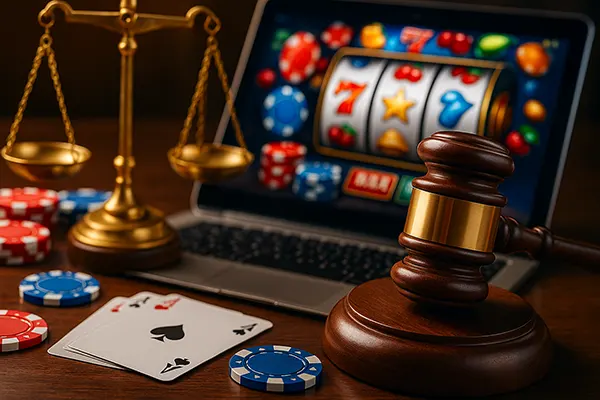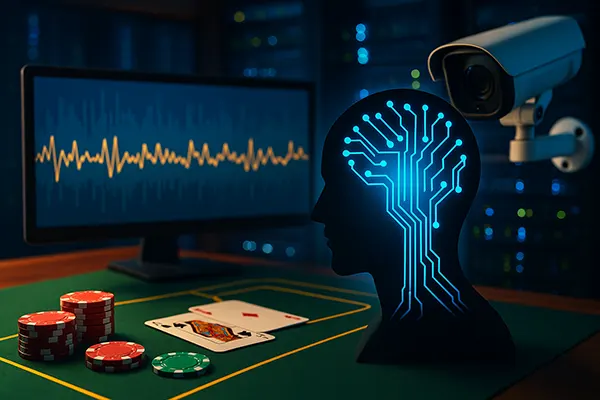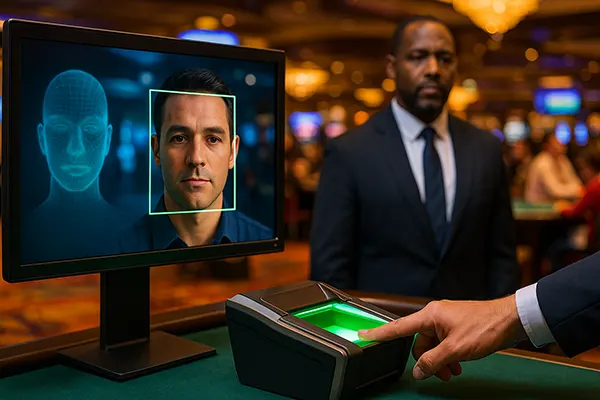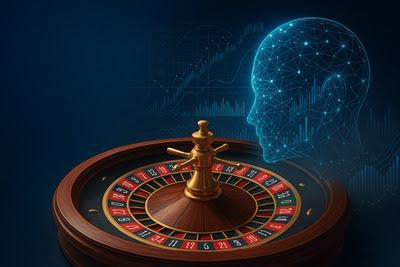
AI in Roulette: Can Artificial Intelligence Predict the Outcome?
Technology continues to reshape industries across the board, and gambling is no exception. Artificial intelligence (AI) has become a buzzword not just in finance or healthcare, but also in the world of casinos and betting. As players become more curious about how AI might influence their chances at the roulette table, one pressing question arises: can AI actually predict the outcome of roulette?
The Impact of Technology on Gambling
The gambling sector has always been quick to adopt new technology—from online platforms to mobile apps, live dealer experiences, and now artificial intelligence. With data-driven systems becoming standard in customer support and fraud prevention, the idea of using AI to beat casino games seems like a natural extension of this trend.
Roulette, a game defined by chance, may look like an unpredictable storm of randomness. But for those who understand both AI and game theory, it sparks a different kind of curiosity: is it possible to outsmart the wheel using algorithms and machine learning?
How AI Is Already Used in Casinos
Modern casinos employ AI for a wide range of purposes: enhancing customer experience, identifying problem gambling behaviours, optimising loyalty programmes, and ensuring real-time fraud detection. These applications are designed to make the casino more efficient and safer, rather than to alter the outcome of games.
For example, the Golden Bull platform is actively implementing artificial intelligence tools to optimise the user experience, personalise game offers and improve the responsiveness of the support team. These advancements, however, focus on enhancing service quality—not on manipulating or predicting game outcomes like roulette.
Understanding How Roulette Works
To assess whether AI can predict roulette outcomes, we need to understand the fundamental mechanics of the game. Roulette involves a spinning wheel with numbered slots and a small ball dropped into the wheel. The result of each spin is determined by physics and chance—nothing more, nothing less.
There are several versions of roulette (European, American, French), but all rely on the same principle: each spin is an independent event. That means what happened on the last spin has no bearing on what comes next.
Randomness at the Core
Roulette is governed by randomness, both in its physical (land-based) form and in online RNG-based versions. This randomness is the foundation of fairness and unpredictability in the game. No matter how many previous outcomes you analyse, the next number remains statistically independent.
Licensed casinos use certified random number generators (RNGs) in digital games and ensure that physical wheels are regularly tested for fairness. These measures eliminate any consistent patterns that AI could latch onto for prediction.
What AI Is Actually Capable Of
Artificial intelligence is a powerful tool for identifying patterns, processing large volumes of data, and making probabilistic decisions. It’s excellent at forecasting based on historical behaviour, segmenting user profiles, and automating complex tasks. However, AI’s strength lies in structured, predictable data—something roulette lacks by design.
In games where elements of strategy or player behaviour exist—like poker—AI can shine. But in roulette, where the outcome is based on physics or RNG, even the most advanced neural network cannot “see the future.”
Machine Learning and Pattern Analysis
There have been experimental systems that use machine learning to analyse thousands of past roulette spins. The idea is to identify mechanical biases in the wheel or human patterns in ball launching. This approach is only feasible in very specific, controlled situations—like identifying an unbalanced wheel in a poorly maintained land-based casino.
In well-regulated environments, such anomalies are rare and corrected quickly. In online games, where results are generated digitally, such an approach is entirely ineffective due to the absence of mechanical variables.
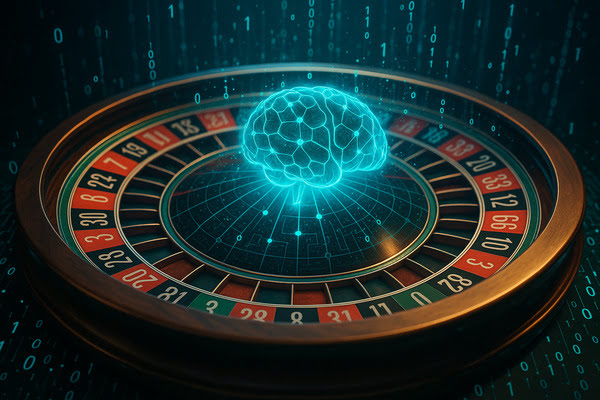
Attempts to Predict Roulette Outcomes
Historically, some researchers and gamblers have tried to beat roulette using physics-based models. By calculating the wheel’s speed, the ball’s velocity, and point of release, they attempted to estimate likely landing zones. These methods require high-speed cameras and real-time data collection—tools not available to the average player and often banned in casinos.
While some reports suggest temporary success using such methods in live roulette, the practical implementation is extremely limited. Casinos are aware of these tactics and take measures to prevent their use, including rotating wheels, adjusting launch techniques, and banning suspicious equipment.
Myths vs. Reality
One popular myth is that AI can “learn” to beat roulette by simply observing enough spins. This idea often stems from misunderstanding how machine learning works. AI models need patterns, and roulette—when functioning correctly—doesn’t provide any.
Another false belief is that tracking trends (such as “red has come up five times”) can be used to predict future outcomes. This is known as the gambler’s fallacy, and AI doesn’t make it any more valid. Every spin is a clean slate.
Legal and Ethical Considerations
Attempting to manipulate or reverse-engineer roulette outcomes using technology can breach the terms and conditions of most casinos and even violate gambling regulations. Using AI with the intent to disrupt or exploit fair gameplay is not only unethical but could lead to account bans or legal actions.
Casinos and regulatory bodies are well aware of emerging technologies. They actively invest in anti-cheating software, AI-based surveillance systems, and random audits to ensure integrity. This makes any form of technological exploitation extremely risky and largely ineffective.
How Casinos Counter Technical Manipulation
Casino security teams use pattern recognition software, behaviour analysis tools, and real-time monitoring systems to detect irregular activity. These systems are often more advanced than anything a player can develop independently.
In land-based venues, physical surveillance and equipment inspections are standard. Online, algorithmic monitoring flags abnormal bet timings, repetitive strategies, or device anomalies. The bottom line: tech-based manipulation attempts are noticed—and stopped.
Conclusion: AI as an Assistant, Not a Predictor
Artificial intelligence holds enormous potential for supporting players in understanding statistical concepts, managing budgets, and learning game theory. But as a tool for directly predicting roulette outcomes, its usefulness hits a wall. The inherent randomness of roulette is what keeps the game fair and exciting.
Rather than trying to beat the system using AI, players should use it to become more informed, disciplined, and responsible. Knowing the odds and understanding the limits of technology is far more powerful than chasing a mythical edge.
Should You Rely on AI?
AI can be part of your learning process, offering data insights and simulations to understand risk and probability better. But if you’re expecting it to tell you the next number on the wheel, you’re setting yourself up for disappointment.
Roulette remains a game of chance—and that’s what makes it thrilling. Smart play, not smart tech, is still your best bet.

